
HIV on AIDS 2018: Global Extent, Impact and the Way Forward
The issues of stigma, discrimination and human rights violations were broadly discussed during the AIDS 2018 conference which

The issues of stigma, discrimination and human rights violations were broadly discussed during the AIDS 2018 conference which
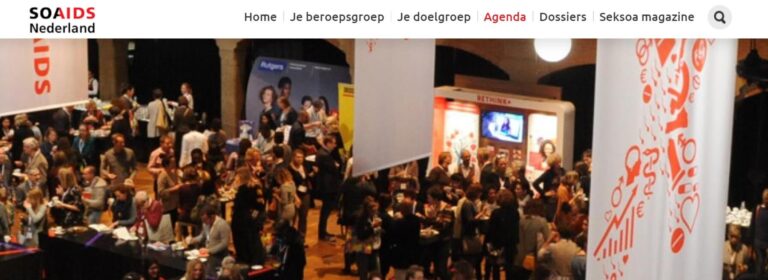
The annual STD x HIV x Sex Congress organized by AIDSfonds in the Beurs van Berlage in Amsterdam, the Netherlands, this year will take place on 23 November. AFEW International gladly offers students the chance to attend the Congress for 15 euros, which is a fraction of the regular ticket price. We invite you to take part in the congress if you are a student interested in issues related to HIV/AIDS and sexual and reproductive health and rights.

Svetlana Izambaeva was one of the first women living with HIV in Russia who was brave enough to open her face. Now Svetlana supports other people living with HIV. In summer 2018, Svetlana Izambaeva’s Non-Profit Charitable Foundation held a gathering of adolescents living with HIV with financial support of AFEW International and other donors. We talked with Svetlana to ask her what was interesting about this gathering in Georgia and why, when we talk about HIV, we also “uncover” other topics.
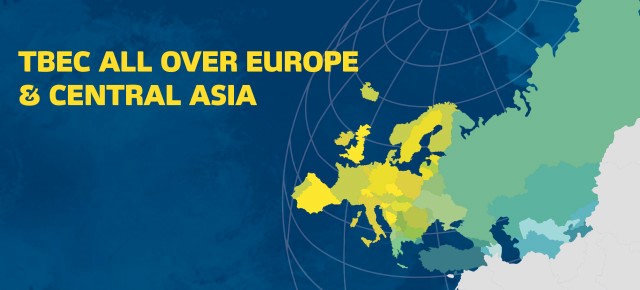
The challenge of tuberculosis (TB) is faced worldwide, including across all of Europe and Central Asia. 1.6 million people died of the disease in 2017, and Heads of State are meeting today to discuss the matter at the UN General Assembly. TB kills more people each year than HIV and malaria combined. As one of the top ten leading causes of death TB deserves the highest political attention.

Saturday morning at the Schiphol airport. A conference participant from Ukraine – camera operator Igor K. – finds out that his tablets are gone. In a second, a confident man loses his heart: he becomes pale, his hands are shaking, and his eyes are full of dread. Igor has been taking methadone therapy for a few years, and for him losing his tablets can be life-changing. In Ukraine, it is not possible to receive methadone at the weekend.
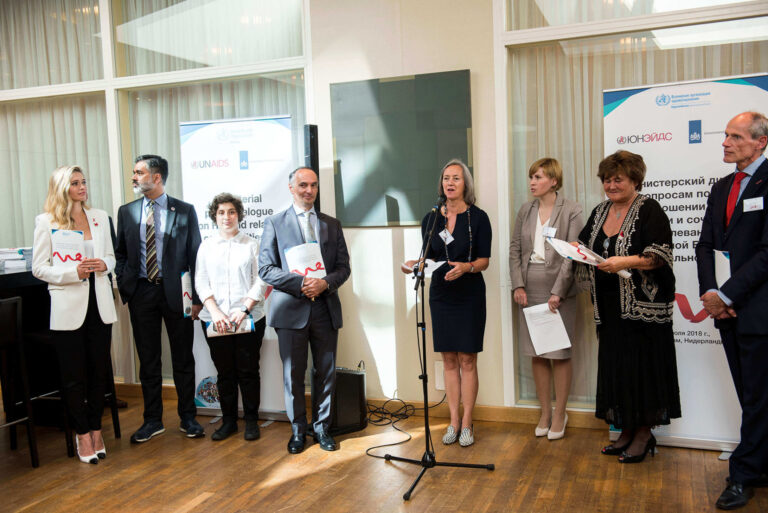
AFEW International and AFEW Network have organised and supported numerous activities within 22nd International AIDS Conference AIDS 2018. AFEW joined many initiatives by other organisations and networks and presented successful cases of work in Eastern Europe and Central Asia (EECA). Together with EECA regional networks and committed advocates, AFEW has put great effort into making sure that the AIDS crisis and related public health concerns in EECA were featured in the conference program.
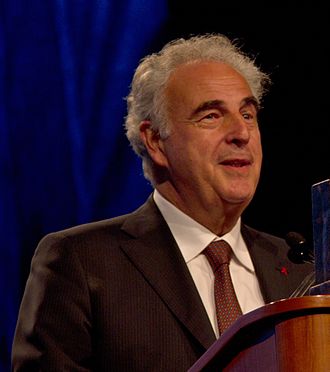
You are warmly invited to join us for the launch of the HIV Outcomes online compendium of good practices on the long-term health, chronic care and well-being of people living with HIV. The launch of this “virtual good practice clinic” follows the “road-testing” of recommendations developed by the HIV Outcomes multi-stakeholder initiative.
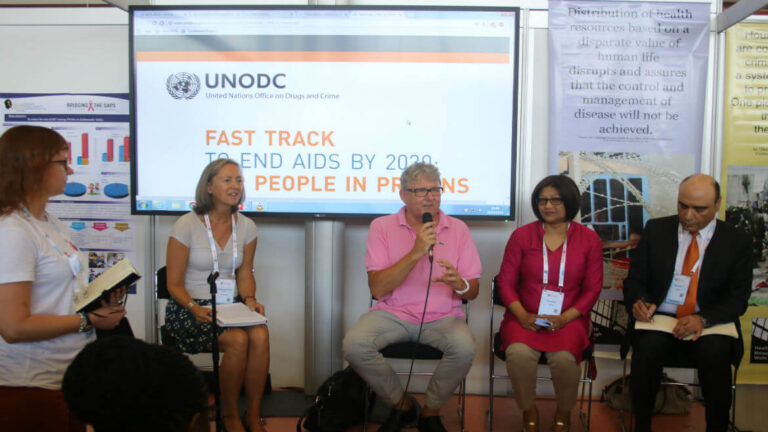
More than 5 000 people, including famous actress Charlize Theron, visited the prison corner in Harm Reduction Networking Zone (HRNZ) located in the Global Village at the 22nd International AIDS Conference (AIDS 2018) in Amsterdam. During five days, visitors could stop by, have a delicious cup of coffee made by former prisoners and participate in a programme with interactive debates, interviews, and presentations. Prisoners are usually a forgotten group since very few organisations pay attention to this vulnerable group of people.
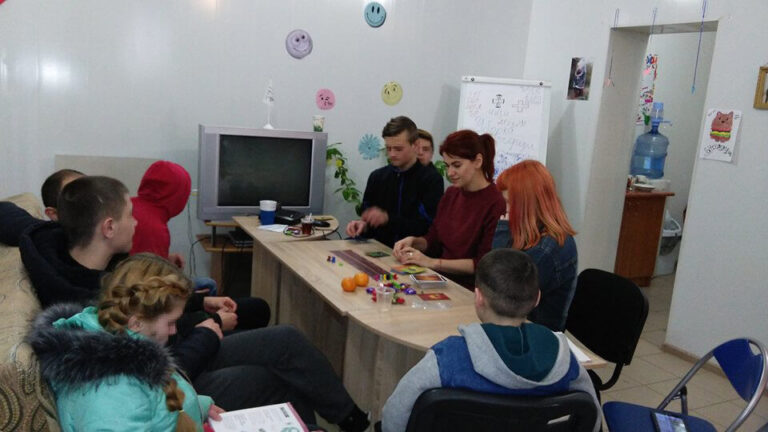
In 2011-2017, over eight thousand clients received 70,232 medical, psychological, social and legal services within ‘Bridging the Gaps: Health and Rights for Key Populations’ project in Ukraine. Halyna, Artem and Carl (names changed) were also clients of ‘Bridging the Gaps: Health and Rights for Key Populations’ project.
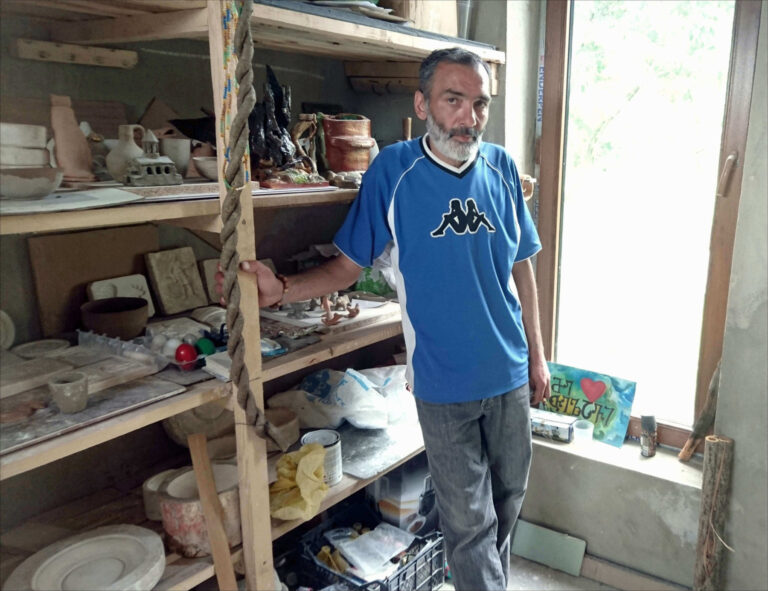
Gocha and Nikoloz are clients of Bridging the Gaps: Health and Rights for Key Populations project in Georgia. Bridging the Gaps: Health and Rights for Key Populations is an international project implemented in 16 countries of the world to improve the health and protect the rights of vulnerable populations. In Georgia, the project was launched in September 2012. Its main goal is protecting human rights of drug users by changing social attitudes and government policies and improving the quality of services delivered and access to them.